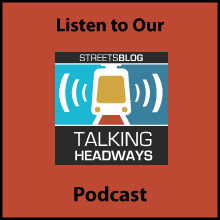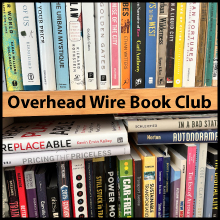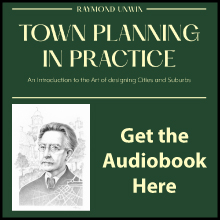The Overhead Wire Daily | Loss, Loneliness, and Emptiness
August 6, 2024
Last week I got a nice break and was able to hang out with my family on the central California coast. It’s a place I haven’t spent much time but wish to spend more in the future. I’ve lived in Bakersfield and San Francisco and have visited a lot of the state, but despite decades here I’ve only scratched the surface of the beauty and culture of just one small place on this planet. It makes human lives feel too short sometimes.
As we were on the coast it was often foggy and cool, somewhere in the 60s most days while the central valley pushed triple digits and it made me mad that we can’t seem to figure out a way to let more people live here, or at least let the people who are here do so more affordably in this temperate climate.
Several of the items we’re sharing today are from this last week’s news but many of them weave together a tale of how our built environment and the way we travel impacts us all psychologically. You’ve probably heard me share the idea of the housing theory of everything in which many of the issues we find in society can be boiled down to housing costs and to a certain extent how we’ve designed our neighborhoods around driving. These items tell powerful stories in that frame about loss, loneliness, and emptiness.
Our cities can feel empty. Sure they are full of buildings but now offices are less full of people and many of the biggest cities are less full of children and make it hard to have pets. The costs of housing makes the cost of everything go up including child care and other services which makes it harder for people to stay.
But while cities feel more empty of people, they also feel full of cars, which can make them even lonelier places. An experiment in England found that closing off a street to cars so that kids could play outside created valuable benefits including children finding and making connections with peers that lived on their street they didn’t even know were there. It also gave parents the ability to make connections and build trust they might not have otherwise.
And if closing streets creates more closeness among neighbors that didn’t start out so close, living near your existing friends could make things even better. Because it’s hard to meet up with them when they live on the other side of town or you have the schedule time on the calendar instead of just popping over.
Finally, there’s a real sense of loss. People are losing and could use a few wins. The story in Slate Judie Poole tells about her mother losing homes during the financial crisis but keeping storage spaces in hopes of getting it back one day is powerful. She hoards and keeps and saves everything but money in hopes of putting it back together again. But reading from the outside, I feel in my heart that with housing costs going the direction they are and our listless attempts at solving the crisis failing that she might not be able to do it.
I don’t think this means we should give up trying to fix these issues, but like solving the climate crisis, we have a tough hill to climb and there are real crushing impacts in the mean time. We can’t give up and allow defeat, and we should push harder to make it easier for people to find places to live in order to help us feel more connected, fulfilled, and stable.
***
For this intro post and more news in your inbox every morning, sign up for a two week free trial of The Overhead Wire Daily, our popular newsletter established in 2006.







